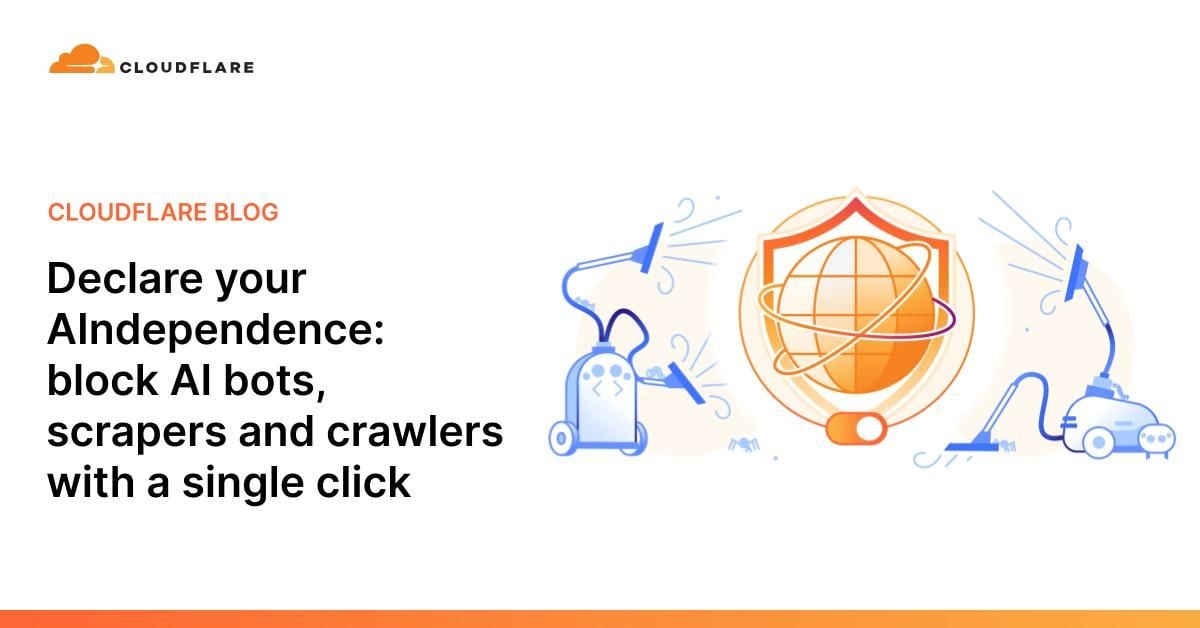AI🌪️Thursday Frontiers: Unveiling Security Risks, AI Defense, Voice Cloning, and Political Ad Transparency
1. OpenAI’s ChatGPT Mac app stored conversations in plain text.
2. Cloudflare introduces one-click AI web-scraping prevention.
3. Microsoft's advanced AI voice cloning tech is restricted.
4. Google introduces AI disclosure for political ads.
Stay tuned for deeper insights!✨
In the rapidly evolving landscape of artificial intelligence, today brings a host of significant developments worth exploring. From privacy concerns with ChatGPT to cutting-edge advancements in voice cloning technology by Microsoft, and measures by Cloudflare and Google to manage AI's impact, the day promises insights into both the potential and pitfalls of AI. Let's delve into the latest breakthroughs shaping the future of technology and society.
1. OpenAI’s ChatGPT Mac app stored conversations in plain text.
Until recently, OpenAI’s ChatGPT macOS app had a security flaw where chats were stored in plain text, making them easily accessible to bad actors or malicious apps. Pedro José Pereira Vieito demonstrated how simple it was to access these chats, leading to concerns. After being contacted by The Verge, OpenAI released an update that encrypts the conversations. OpenAI spokesperson Taya Christianson confirmed the issue and emphasized their commitment to high security standards. With the update, previous vulnerabilities have been addressed, ensuring that user conversations are no longer easily readable by unauthorized parties.
/cdn.vox-cdn.com/uploads/chorus_asset/file/25462005/STK155_OPEN_AI_CVirginia_B.jpg)
2. Cloudflare introduces one-click AI web-scraping prevention.
Cloudflare now offers a one-click solution to block AI bots from scraping website content without permission, aiming to protect content creators. This new feature addresses customer concerns about unauthorized AI data use. Despite existing methods like robots.txt, many AI bots ignore these directives. Cloudflare's enhanced bot detection relies on machine learning to identify and block unauthorized crawlers. This initiative ensures better content control for creators amid rising AI bot activity.

3. Microsoft's advanced AI voice cloning tech is restricted.
Microsoft's research team unveiled VALL-E 2, an AI system that generates human-level voice synthesis from just a few seconds of audio. VALL-E 2, using "Repetition Aware Sampling," delivers high-quality, consistent speech even for complex phrases. While it offers promising applications, such as helping those who lose their ability to speak, Microsoft won't release it publicly due to risks like voice imitation without consent and potential misuse in scams. Ethical guidelines and detection protocols are emphasized. This move mirrors other AI companies' cautious approaches, highlighting the need for responsible AI deployment.

4. Google introduces AI disclosure for political ads.
Google has streamlined political ad transparency by automatically generating disclosures for ads containing AI-generated or digitally altered content. This update aims to enhance transparency amid growing concerns over AI's role in political advertising ahead of the US presidential election. Advertisers must still provide their own disclosures for non-election ad formats, ensuring clarity across feeds, YouTube Shorts, and various ad placements on mobile devices, computers, TVs, and the web. Legislative efforts, including a Senate bill and FCC proposals, reflect ongoing concerns about the ethical use of AI in political campaigns.
/cdn.vox-cdn.com/uploads/chorus_asset/file/24016887/STK093_Google_02.jpg)
As we conclude our exploration of today's AI frontiers, it's clear that advancements bring both promise and challenges. Stay tuned as we continue to unravel the complexities and possibilities of artificial intelligence, ensuring we harness its potential responsibly. Follow us for more updates on how AI continues to redefine our world and how we can navigate these innovations thoughtfully and ethically. Together, let's stay informed and engaged in the evolving landscape of technology.








